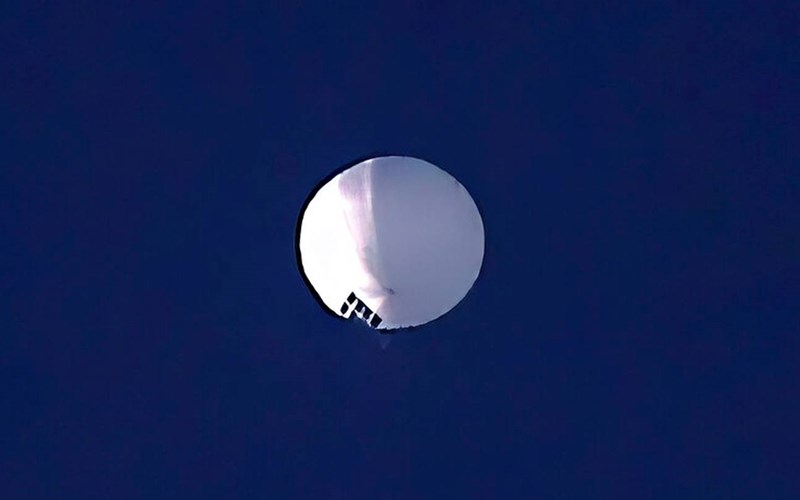Recovery crews continue to probe off the coast of South Carolina for more debris from the Chinese spy balloon that was recently shot down by a U.S. fighter jet, but only after it traversed the entire country.
China claims the balloon was a weather research device that had blown off course, but Senator Bob Hall (R), a former Air Force officer, is among those who believe the balloon was sent over the U.S. to test her defenses and was perhaps a dry run for a future electromagnetic pulse (EMP) weapon attack.

He says experts have long warned that the U.S. electric grid is vulnerable to physical, cyber, and EMP threats. However, unlike physical and cyber, the threat from an EMP to the nation's electric grid has been all but ignored by the government and the electric industry – even though the experts on the White House Commission on EMP have concluded that one of the most likely high altitude nuclear (EMP) attacks would be delivered by a weather balloon.
"It is an extremely high risk to the American people because it is one of the simplest and easiest ways to absolutely cripple America beyond recovery," Sen. Hall recently told American Family Radio.
He added that the U.S. has been aware "for decades now" that EMP weapons are a threat, and that is why he has spent his time in office devising a plan for if and/or when there is a period in which "we have no electricity, while we're getting it restarted, and determining what we can do so that we can do a restart."
"The system may shut down, but it will not be burned up," Hall explained. "Right now, today, if we don't do something, the system will be burned up and will not be repairable."
He told the radio program that it is vital that America has a system that can survive an EMP. His SB 330 in the Texas Senate and Rep. Matt Schaefer's HB 1412 in the Texas House aim to see to that.







